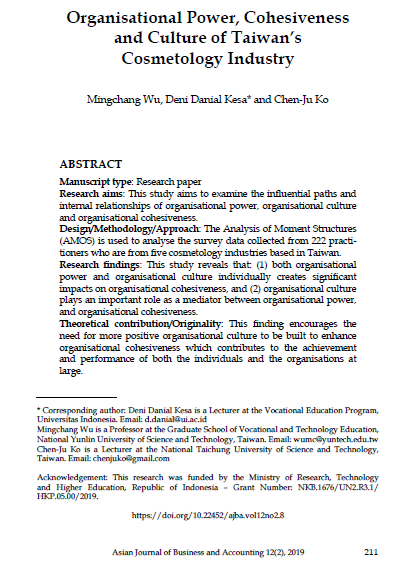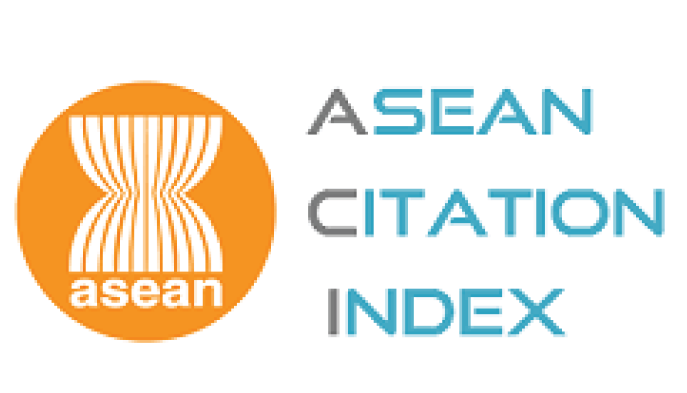Organisational Power, Cohesiveness and Culture of Taiwan’s Cosmetology Industry
DOI:
https://doi.org/10.22452/ajba.vol12no2.8Abstract
Manuscript type: Research paper
Research aims: This study aims to examine the influential paths and internal relationships of organisational power, organisational culture and organisational cohesiveness.
Design/Methodology/Approach: The Analysis of Moment Structures (AMOS) is used to analyse the survey data collected from 222 practitioners who are from five cosmetology industries based in Taiwan.
Research findings: This study reveals that: (1) both organisational power and organisational culture individually creates significant impacts on organisational cohesiveness, and (2) organisational culture plays an important role as a mediator between organisational power, and organisational cohesiveness.
Theoretical contribution/Originality: This finding encourages the need for more positive organisational culture to be built to enhance organisational cohesiveness which contributes to the achievement and performance of both the individuals and the organisations at large.
Practitioner/Policy implications: The interactive factors’ effect overwhelms the single-factor effect, where individuals develop their organisational cohesiveness, even if each single factor functions separately. In reality, organisational culture needs to be the first priority factor to be developed in a workplace so as to build cohesiveness.
Research limitations/Implications: This study is conducted based on a fundamental assumption, hence the limitation lies in that the surveyed sample may or may not fully understand the question/ items provided in the questionnaire. This could affect the level of honest answers revealed through their perceptions. Future studies may consider taking the qualitative approach.
Keywords: Cosmetology Industry, Organisational Power, Organisational Culture, Organisational Cohesiveness
JEL Classification: L66, L2, D91
Downloads








